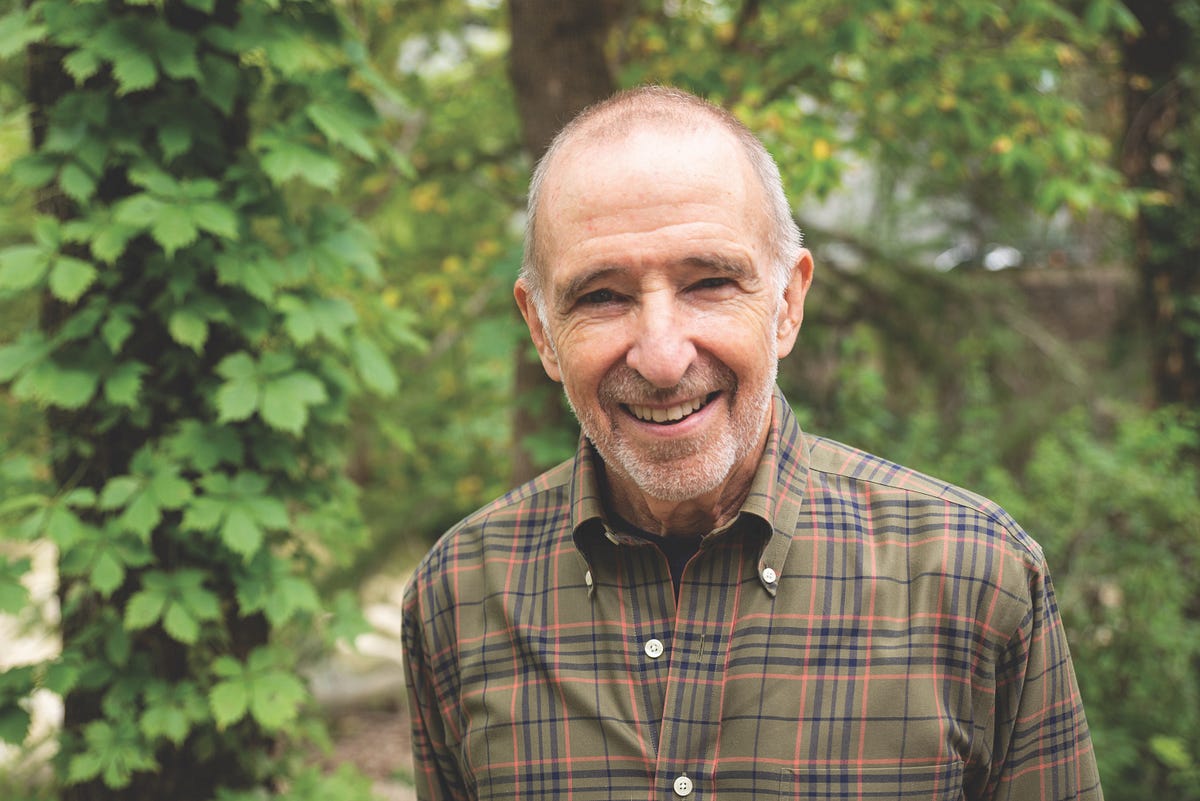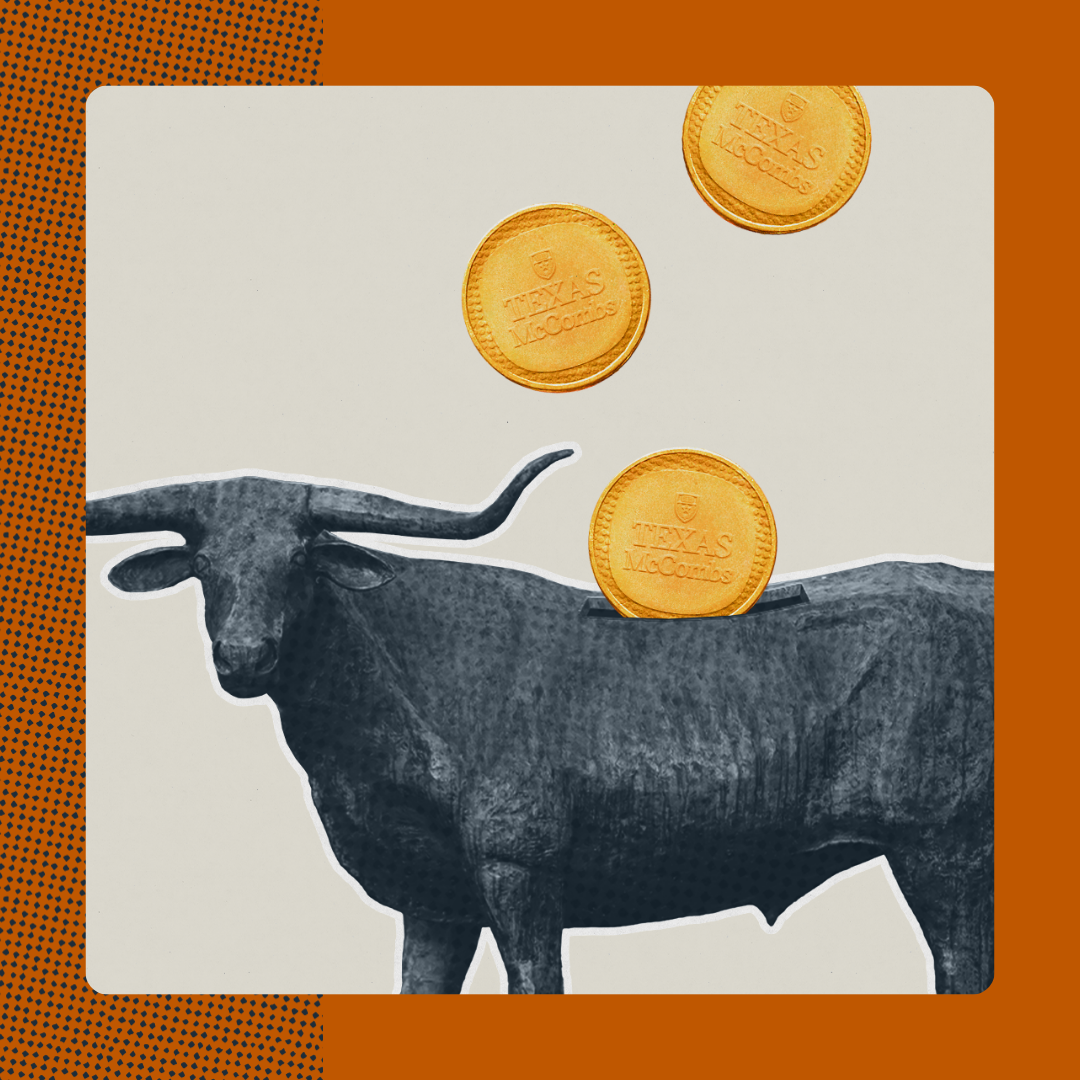Native Pride
Emeritus accounting professor inducted into Chickasaw Nation Hall of Fame
By David Canright

When Emeritus Professor of Accounting Bill Kinney was inducted into the Chickasaw Nation Hall of Fame in May, it was a pinnacle moment in a lifetime filled with service and professional distinction.
Kinney retired from McCombs in 2016, after a 50-year academic career during which he distinguished himself as both a prolific researcher and committed teacher. He was also deeply involved in promoting diversity in the field of accounting throughout his career, serving as a mentor to many minority students over the years, especially those who aspired to careers in academia. Yet he says there’s still a long way to go for Native Americans.
“Very few Native Americans choose to pursue Ph.D.s in business,” he says. “We still have much work to do.”
Kinney’s commitment to that kind of work is a large part of why the Chickasaw Nation selected him for its Hall of Fame. His achievements as a teacher and mentor, the writing of nine books and more than 100 scholarly articles that substantially influenced national and international accounting policy and practice, and his co-founding and directing the University of Texas’s Center for Business Measurements and Assurance Services — all these were taken into consideration as well.
Growing up in Stillwater, Oklahoma, Kinney says his identification as a Chickasaw was always core to his sense of self. What he drew from this heritage might be summed up in a precept his Chickasaw father instilled in him:
“My daddy said we should always treat people right and he did so himself,” Kinney says. “We didn’t necessarily have to do the right thing, but we had to treat people right.” Kinney says a lifetime of experience now leads him to believe this is a shared Chickasaw value.
And it may have something to do with the fact that he has built his most lasting legacy as a mentor.
Receiving the Chickasaw honor this year strengthened his sense of connection to his ancestors, Kinney says. His great-great grandfather had been a governor of the Chickasaw Nation. His family entered what’s now the state of Oklahoma during the infamous Trail of Tears.
“In 1831, Andrew Jackson uprooted the Chickasaw, Choctaw, Cherokee, Creek, and Seminole peoples from their traditional homes in the Southeast and marched them all off to Indian Territory,” Kinney says.
Chickasaws established farms, ranches, and businesses on what seemed to be unpromising land in the West while maintaining their identity as a nation.
The land turned out to have more resources than Andrew Jackson realized. Chickasaws did well as ranchers and cotton farmers, and in the 1890s, the region became one of the world’s most productive areas for cotton.
In the 1920s, oil was discovered in the ground beneath their feet, offering new vistas of prosperity for the Chickasaw people.
“At the turn of the 21st century, the Chickasaw Nation established the casinos that they are probably best known for now,” Kinney says. The Winstar World Casino and Resort near the Oklahoma-Texas state line, for example, is the largest casino in the United States and the second largest in the world.
“Chickasaws have been like a modern-day phoenix,” Kinney says. “You take what you have, you think and work hard, and you rise.”
This year’s Chickasaw honor was Kinney’s second hall of fame induction. In 2014 he was awarded a place in the Accounting Hall of Fame for mentoring generations of accounting students and faculty while influencing national and international auditing policy and practices through his service on numerous standards and advisory boards and councils.
“Originally, I wanted to be an architect,” Kinney says, “but discovered I was color blind. It turns out that not seeing color has been a good thing for me — and a modest limitation for an accounting professor.”
This article appeared in the fall issue of McCombs magazine. Click on the link to see the full issue.
About this Post
Share:


